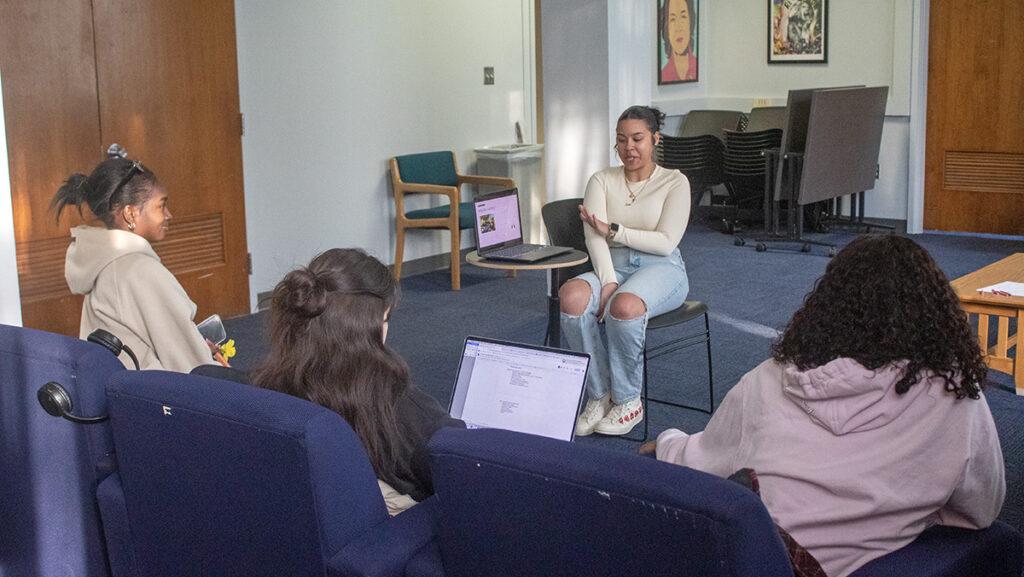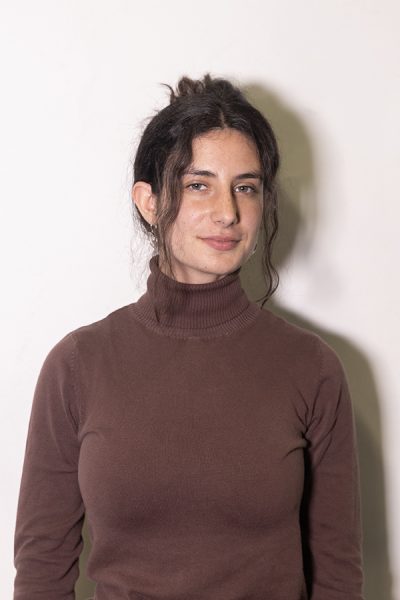A significant part of campus life is involvement in clubs and organizations, which can teach skills like leadership and organization. While a bulk of the responsibility falls on student organization leaders to sustain their clubs, Ithaca College has some opportunities for support that can address issues with club sustainability.
Linnea Carchedi, a student leadership consultant in the Office of Student Engagement, said she regularly meets with student organization leaders to help them through issues ranging from recruitment and marketing to interpersonal complications and leadership skills.
Carchedi said recruitment is the main issue that new club leaders need assistance with. She said OSE requires clubs to have at least four executive board members — including a president and a treasurer — and at least six general body members. Carchedi said she recommends club leaders put up fliers, reach out to friends and make an Instagram page to connect with potential members.
“There are a few different ways that we recommend they go about that,” Carchedi said. “The really exciting thing is, we have an org fair at the beginning of the year and [if] you’re starting a new club, you can still table at the org fair even if you’re not finished with the process.”
The process for creating a new club is outlined on the OSE’s website. The New Student Organization Recognition team specifically focuses on helping new clubs get started.
Carchedi said one of the most common issues current e-board members run into is e-board transitions.
Whitney Heck ’22, former co-president and founding member of Human By Design, said the modeling club could not sustain itself because, once she graduated, there was nobody to assume her position or other e-board positions. Human By Design is no longer a functioning club at the college.
Heck said that when she first established the club with a friend, finding e-board members was a matter of luck.
“I feel like a lot of times starting a new club, you never know if it’s going to really sink or swim, so a lot of it was really just getting lucky with some friends and other friends of friends around campus that were just willing to kind of take a chance on us,” Heck said. “We just had to kind of really push what we were hoping to get at with the club before we could kind of gain traction on it.”
Carchedi said that for clubs struggling with the transition between e-boards, there is a worksheet old and new e-board members can fill out together to help pass along the information.
Michele Lenhart, director of the OSE, said via email that the OSE also offers workshops for student organization advisers to help their e-boards with transitions. Two upcoming workshops are at noon April 28 and May 1, both in the Cayuga Falls Meeting Room.
“The transition workshops offer org. leaders a chance to create helpful materials for the next/incoming e-board,” Lenhart said via email. “The best transition materials include details regarding important contacts, dates and event logistics, along with bigger picture information such as the purpose of the org, mistakes to avoid and overall expectations.”
Junior Jadena Williams, event coordinator for Sister 2 Sister and public relations officer for the Students of the Caribbean Association, said she has had an easy time transitioning because the e-board alumni were so hands-on.
“They’re people that we are comfortable with to reach out if we have any issues,” Williams said. “[Alumni are] very helpful at any time to be like, ‘Oh, I’m having trouble with this. How did you navigate that when you were on the board?’ And they’re always willing to help us.”
While e-board transitions are not a problem for her organization, Williams said she has struggled to keep students engaged with Sister 2 Sister programming because of issues with funding. She said that even when she applies for funding through the Student Governance Council, she does not get the funding she needs to have engaging programming for the general body.
“The process for getting funding from the [college] sometimes can be … really difficult,” Williams said. “It’s a lot to understand and they’re expecting [perfection], so one small thing in a contract [can] really stop us from getting approved for the money. If we don’t get the funding to have programming, sometimes we just aren’t able to [do anything], and then we have to find ways around that to do programmings weekly that don’t cost any money.”
Williams said she would like to see more support from the college in terms of applying for funding and understanding the process.
“Understand that we are students who have other obligations outside of student organization and things may not be perfect, and providing better hands-on assistance with us getting those contracts to get the budget [would help],” Williams said. “Having workshops to train the treasurers on how to submit a budget and what to look for, just to help with that process itself.”
Carchedi said there are Student Leadership Institute workshops available on IC Engage for e-board members to understand their funding. She also said there is a finance team in the OSE that answers questions about funding but the office itself does not give funding.
“We always say SGC helps you get the money, OSE helps you spend it,” Carchedi said.
Heck said that even while Human By Design existed, she struggled with relationships with other e-board members and the distribution of responsibilities, which impacted its functionality. She said she was not able to sustain the club in her last semester of college because many of the responsibilities had fallen solely on her.
“It was a lot of miscommunication and not really going with the original game plan,” Heck said. “The college also didn’t really help us out by giving us a bit more funds to kind of keep the motivation going, keeping everything else going strong. … I would love to see it starting up again. However, I just genuinely did not have the time or energy to really put it into motion to set it up for the next year.”
Heck said she did not feel comfortable personally addressing those issues and she said she wished the college had a way to step in on behalf of e-board members to suggest changes to behavior. She said if there was a three-strike rule for board members, or a system for the faculty adviser to step in, go to the OSE and then send a general letter to the people who are not committing to the club, it would relieve the pressure on other members.
“I think a lot of times, especially with what happened with Human By Design, someone does not do their job for a very long time and then it falls on the shoulders of one or two students to kind of be the person to approach them and say, ‘Hey, look, this isn’t working out. We think you should step down,’” Heck said. “It always gets awkward because it breaks friendships and creates drama. I think if it just came from the college itself in a letter format then it would be better to anonymously move that person out rather than making them feel targeted by certain students.”
Lenhart said that if a club is discontinued because of lack of engagement, there are different options depending on the duration of the closure.
Lenhart said that if a club struggles in a spring semester but restarts in the fall, they can jump right back into activities without any problem. If the shutdown is longer, there is a longer procedure.
“If the student org is inactive for longer than a year, then they would need to go through the New Student Org. Recognition process, which offers additional support to student orgs. to ensure they are sustainable,” Lenhart said via email.
Williams said something that helped SOCA recover from a period of critically low engagement was rebranding the club. It was originally called Caribbean Students Association but was changed to SOCA because Soca, as a recognizable genre of Caribbean music, was more appealing to people. She said the club also changed the logo and campaigned, through tabling and social media, to make its presence more known on campus.
“We’ve had up to 60 people attending our meeting because we even did collabs off campus,” Williams said. “We found a Caribbean restaurant that sponsored our food because we didn’t have funding, so we had to find other ways to navigate that. So we reached out to the local community and asked them to sponsor us and they came in and provided us food one week. We did a cohort on just Caribbean history and people came out and it was just really good energy.”









